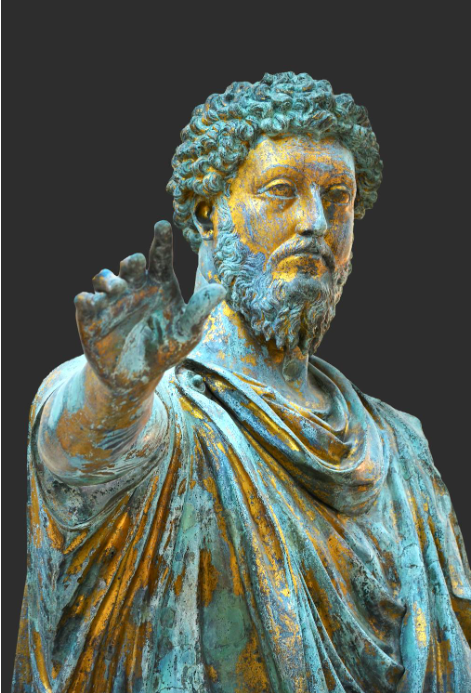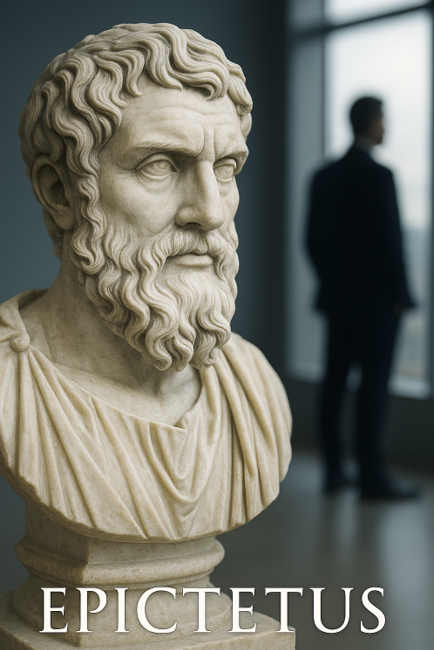Applying Marcus Aurelius' 'Meditations' to Leadership
Marcus Aurelius, the Roman Emperor from 161 to 180 AD, is often remembered not just for his reign but for his philosophical work, “Meditations”. This collection of personal writings offers profound insights into leadership, emphasizing virtues such as wisdom, courage, justice, and temperance. Aurelius' reflections, intended for his own guidance, have transcended time and continue to be relevant, particularly in the realm of leadership. This article explores how the principles from “Meditations” can be applied to modern leadership, fostering a more ethical, resilient, and effective approach.
1. Self-Reflection and Self-Improvement
Aurelius’ “Meditations” is fundamentally a practice of self-reflection. Leaders can benefit immensely from regular introspection, assessing their actions, decisions, and motivations. By consistently evaluating oneself, leaders can identify areas for improvement and ensure they are aligned with their core values and principles.
Application:
Maintain a journal where you reflect on your daily experiences, decisions, and interactions. This practice can help in recognizing patterns, understanding personal biases, and fostering continuous self-improvement.
Implement regular feedback sessions with peers and subordinates. Constructive feedback can provide valuable insights into your performance and areas that need attention.
2. Embracing Impermanence and Change
Aurelius often pondered the transient nature of life and the inevitability of change. Leaders must recognize that change is constant and inevitable. Embracing this reality can help leaders remain adaptable and resilient in the face of challenges.
Application:
Develop strategies that prepare the organization for change. This includes fostering a culture that is open to innovation and flexible in its operations.
Equip yourself with tools and techniques to build resilience. This can include mindfulness practices, stress management workshops, and scenario planning exercises.
3. Leading by Example
Aurelius believed in the importance of personal virtue and leading by example. Leaders should embody the values and principles they wish to see in their organization. This creates a culture of integrity and trust.
Application:
Promote ethical behavior by setting clear standards and expectations. You should demonstrate honesty, fairness, and accountability in your actions.
Engage in the behaviors you expect from your team. This includes showing respect, being punctual, and maintaining a positive attitude.
4. Focus on the Common Good
Aurelius emphasized the importance of working for the common good and serving others. Leaders should prioritize the well-being of their team and organization, fostering a collaborative and supportive environment.
Application:
Adopt a servant leadership approach, where your primary goal is to serve your team. This involves listening to their needs, providing support, and empowering them to succeed.
Create initiatives that promote teamwork and collaboration. This can include team-building activities, open forums for discussion, and recognition programs that celebrate collective achievements.
5. Practicing Mindfulness and Presence
Aurelius often wrote about the importance of being present and mindful. Leaders can benefit from mindfulness practices that enhance their focus, reduce stress, and improve decision-making.
Application:
Incorporate mindfulness training into the development programs. Techniques such as meditation, deep breathing exercises, and mindful listening can help you stay grounded and focused.
Conduct meetings with a mindful approach. This involves being fully present, actively listening, and minimizing distractions.
6. Cultivating Emotional Intelligence
Aurelius' writings reflect a deep understanding of human emotions and the importance of managing them effectively. Leaders should cultivate emotional intelligence to navigate interpersonal relationships and create a positive work environment.
Application:
Take trainings on emotional intelligence, focusing on self-awareness, self-regulation, empathy, and social skills.
Equip yourself with conflict resolution skills to handle disputes and tensions within the team effectively.
7. Acceptance and Stoic Calm
Aurelius advocated for accepting things beyond one's control and maintaining a calm demeanor. Leaders should practice acceptance and stoic calm, especially in stressful situations, to make rational decisions and lead effectively.
Application:
Learn stress management techniques such as cognitive reframing, progressive muscle relaxation, and visualization.
Develop crisis management protocols that emphasize calm and composed attitude during emergencies.
8. Continuous Learning and Growth
Aurelius was a proponent of lifelong learning. Leaders should embrace continuous learning and encourage their teams to do the same, fostering a culture of growth and development.
Application:
Invest in professional development programs. This can include workshops, seminars, online courses, and mentorship opportunities.
Create a culture that values learning and innovation. Encourage curiosity, experimentation, and the sharing of knowledge.
Conclusion
Marcus Aurelius’ “Meditations” offers timeless wisdom that can significantly enhance modern leadership. By integrating principles such as self-reflection, adaptability, ethical behavior, mindfulness, emotional intelligence, acceptance, and continuous learning, leaders can cultivate a more effective and compassionate approach. These practices not only improve individual leadership but also contribute to the overall success and well-being of the organization. In a world where leadership challenges are ever-evolving, the Stoic philosophy of Marcus Aurelius provides a solid foundation for navigating complexities with wisdom and grace.





